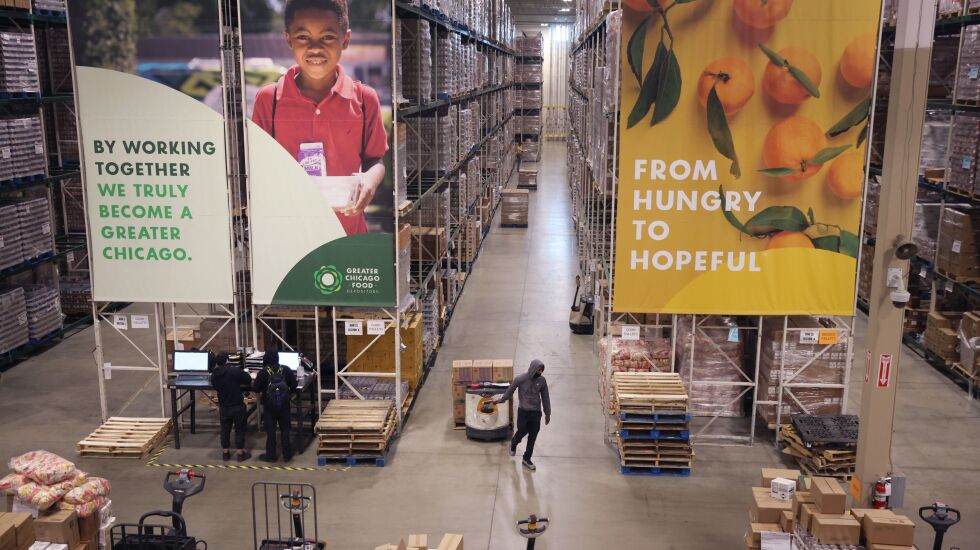
The impact of ending emergency SNAP benefits cannot be understated. It is likely to increase hunger by 10% — around 4 million more Americans suffering food insecurity.
As the founder of Nayak Farms in Gardner, Illinois, I am committed to providing fresh produce to Illinois food banks and pantries. In 2022, the Nayak Farms Food Insecurity Initiative fed over 100,000 people. We grew, harvested, packaged and delivered our farm produce to food banks, distributing to thousands of food pantries and soup kitchens. And our goal for 2023 is to feed more than 250,000 Illinoisans suffering from hunger.
The General Assembly is considering the Illinois Farmers Who Fight Hunger Act (SB1627), with bipartisan chief sponsorship by Democratic Sen. Dave Koehler and Republican Sen. Dale Fowler. The bill incentivizes farmers to donate a minimum commodity yield (or cash equivalent) to food banks and farmers by offering estate tax forgiveness on their farmland. This program will generate essential food and revenue.
SEND LETTERS TO: letters@suntimes.com. We want to hear from our readers. To be considered for publication, letters must include your full name, your neighborhood or hometown and a phone number for verification purposes. Letters should be a maximum of approximately 350 words.
America’s hunger crisis is not food scarcity or lack of production, but food waste and inefficiency. We should also create the Illinois Food Rescue Authority, a business-to-business logistical platform for delivering otherwise discarded, perfectly usable food to food banks, pantries and charities.
As a life-long Illinoisan, I am confident that our Midwest good neighbor mentality will prevail in these dire circumstances and that our state will rise to the challenge of fighting hunger.
Dave Nayak, MD, MPH
Fear of crime is not exclusive to race
I take exception with Alden Loury’s recent column, “Chicagoans should start talking about why they’re so afraid in the first place.” According to Loury, white people “can’t actually be afraid of violent crime — they don’t really experience violent crime.”
This observation makes little sense. First, although far less than Black people, white people have of course experienced violent crime. Suffering violence is not a prerequisite to fear of violence. While predominantly Black and brown neighborhoods suffer more violence than predominantly white neighborhoods, over the last couple of years, violence has taken place all over the city, including Oak Street and the Miracle Mile on Michigan Avenue.
No place in the city is free of violence. Fear is not exclusive to a race of people, even if certain races may have more to fear.
Terry Takash, Western Springs







